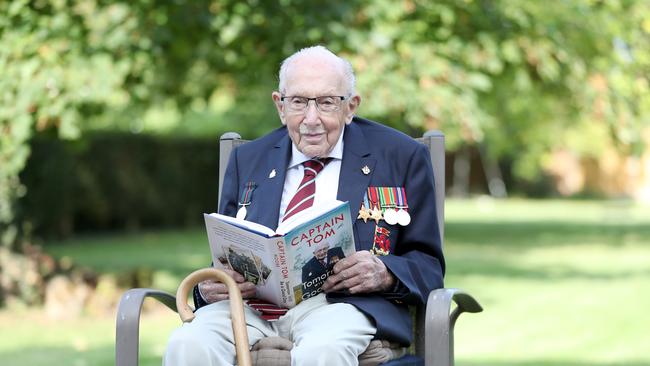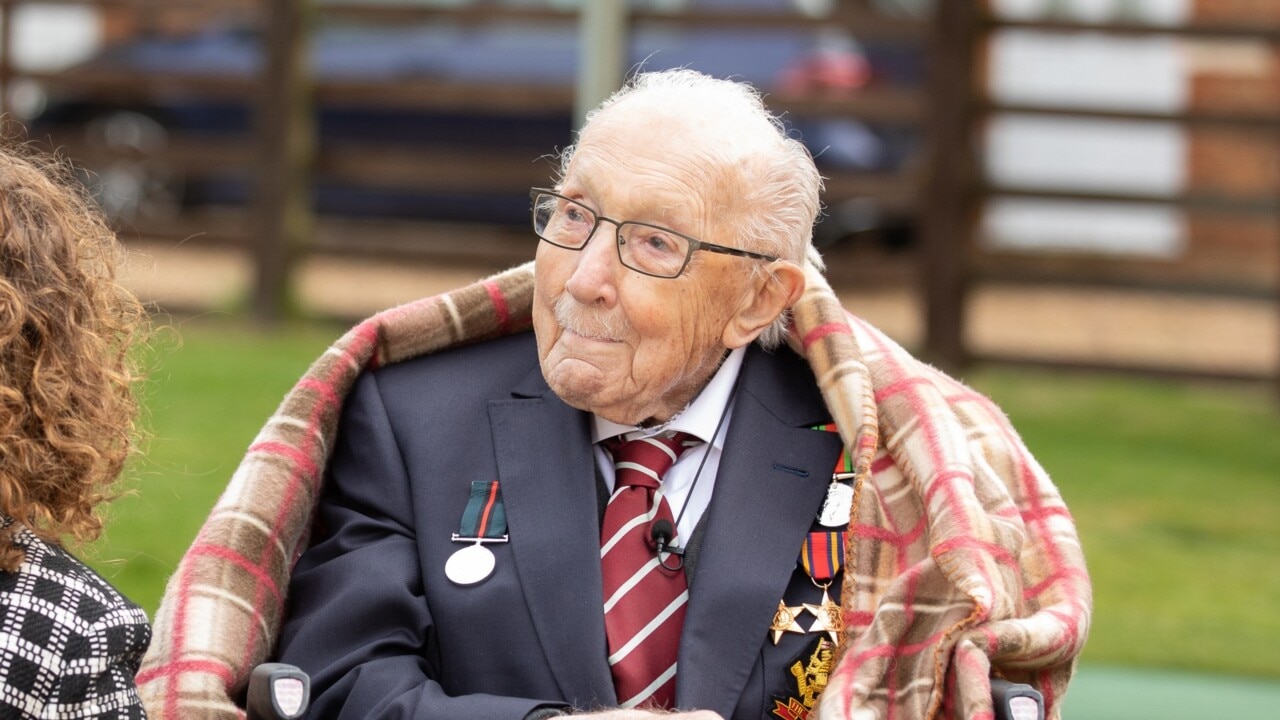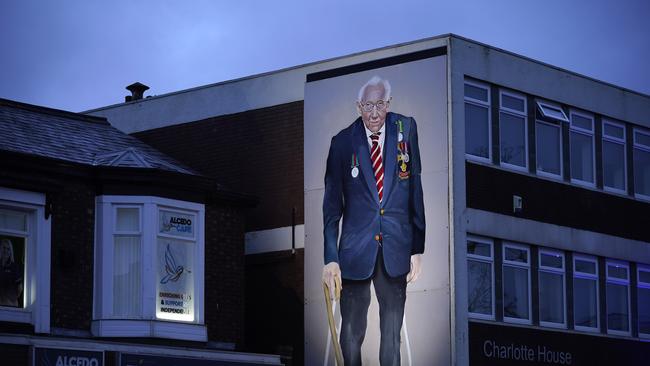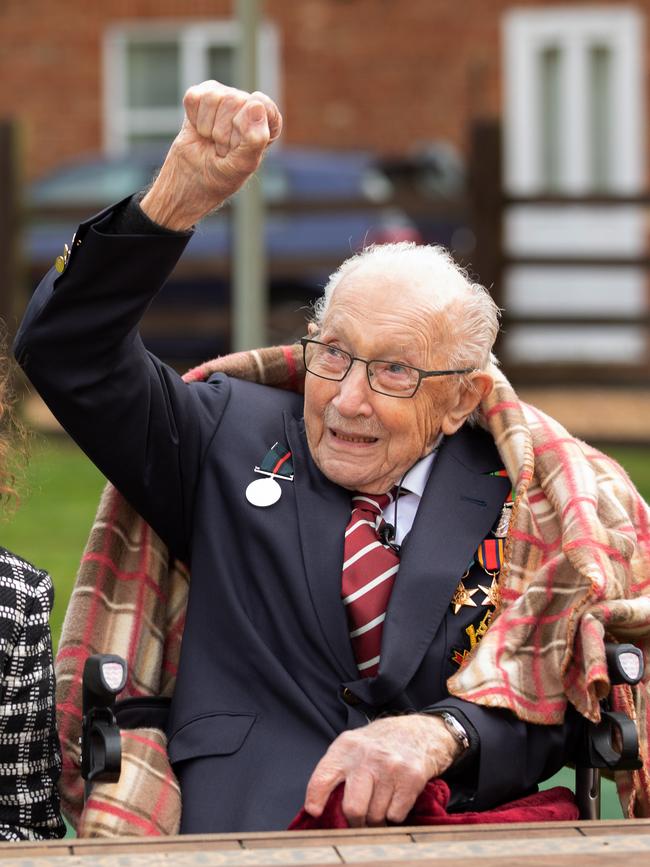Captain Tom Moore, the hero who shattered an ageist prejudice
Covid hero Captain Tom Moore achieved many things, laying waste to woke predjudices and reminding the left that old white men can give a great deal to society.

Fast forward to 2020 and who was the British hero of the hour — of the entire year, in fact? It was an old white man. A very old white man. Captain Tom Moore.
From woke political agitators mocking old white men to a nation taking an old white man to its heart — there is a very important story here.
It points to one of Captain Tom’s most wonderful achievements — his shattering of the ageist prejudices of the new left. His laying to waste of the idea that if you are old and white and male, then you are by definition a bad person, a toxic person.
Captain Tom did many great things. His proving that Britain is a country for old white men, that we do value the sacrifices and wisdom and charity of our older generations, should definitely be counted among them.
Captain Sir Tom Moore, the undisputed hero of COVID Britain, died on Tuesday at the age of 100. He became a national treasure last year when he walked 100 lengths of his garden in the run-up to his 100th birthday, to raise money for National Health Service charities that were combating COVID-19.
The image of Captain Tom leaning on his Zimmer frame as he persevered in his garden walks has become iconic. There are murals of it on streets in Britain.

He became a global sensation, too. The world media rushed to cover this heartening story of the 99-year-old army veteran doing his bit in the battle against the virus. Soon, politicians and even royalty recognised Captain Tom for his sterling work during the two great crises that have battered Britain in modern times.
First, World War II, in which Captain Tom served in the India and Burma campaigns. And second the COVID calamity, during which he propelled himself on to the frontline of assisting the health service: his walking raised £33m ($59.4m).
Boris Johnson and numerous other politicians paid tribute to him. And at a special service at Windsor Castle the Queen knighted him. As the British Prime Minister said when Captain Tom died this week, “he cheered us all up … he embodied the triumph of the human spirit”.
He did something else, too. He demonstrated — not that it should have been necessary to do so — that old white men can give a great deal to society; that being old and white does not make one a bad person.

In recent years it has been open season on white men, especially old white men. According to the woke left, to the identitarian set that wields so much influence in politics, education and culture, oldness and whiteness are toxic qualities, signifiers of “privilege” and “regressive attitudes”. Think about the casual, cavalier way in which “white man” has become an insult. I’ve lost count of the number of times people have said to me, “You would say that, you’re a white man”, as if my skin colour, my entirely accidental racial make-up, negates my point of view.
It’s even worse for older white men. As British journalist Simon Jenkins says, if you’re an elderly white bloke these days you are written off as “pale, stale and male”. These PSMs, as Jenkins calls them, are the last social group it is “OK to vilify”.
We see this vilification all the time. Boomer-bashing has become almost a full-time pursuit among young radical leftists. (Captain Tom was older than the boomers, of course, having been born in 1920.) A recent book by venture capitalist Bruce Gibney described the boomers as a “generation of sociopaths”. “The boomers ruined everything”, said the headline to one effusive review of that book.
Among millennial leftists, it is commonplace to blame older generations for every ill of modern society. This hyper-moralistic generationalism depicts older people as entitled and greedy, as self-satisfied homeowners who don’t give a damn about millennials.
Politically correct ageism reached its nadir in Britain following the vote for Brexit. The fact older generations were likelier than younger ones to have voted Leave was held up as proof that they were regressive and racist.
A writer for GQ magazine even declared: “We should ban old people from voting.”

Novelist Ian McEwan made the Guardian-reading set chuckle into their macchiatos when he said Britain soon would become a pro-Remain country because 1.5 million of the “oldsters” who voted Leave would have died. “Angry old men … freshly in their graves”, he fantasised.
This fashionable ageism has been genuinely vile. It blames old people — especially old white men — for every bad thing. It grates against social solidarity by splitting the generations into warring camps. And it threatens to affect how we as a society care for older people. If more and more people view the elderly as greedy and prejudiced, if we are encouraged to mock the “pale, male and stale”, then that could well undermine the culture of respect and love that we need in care homes, and across society.
Captain Tom did his bit in this battle, too; in this necessary war against the new ageism and against the cynical whipping-up of generational tensions. He reminded us that there is so much we can learn from older people. That their experiences are important. That their wisdom is valuable. It is wonderful that it was an old white man who became the hero of the pandemic because that made visible to everyone that there is nothing “stale” about our older generations.
COVID-19 has hit older people the hardest. In Britain, largely as a result of lax control measures at care homes, thousands and thousands of elderly people have died. Many others, including Captain Tom, joined the crusade against the virus.
Maybe after the trials and tribulations of last year, more people will recognise just how crucial it is that we care for older people, listen to them, and never, ever dehumanise them.
Brendan O’Neill is editor of Spiked.




In January 2018, at an anti-Trump Women’s March in London, a laughing, pink-haired feminist waved a placard that said: “No country for old white men.”